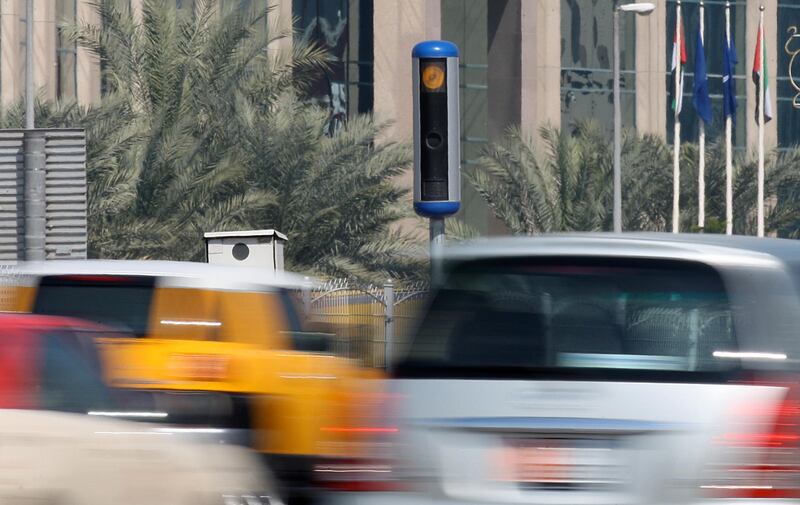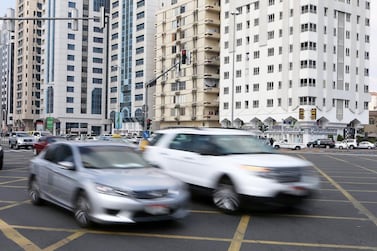Road safety campaigners are calling for average-speed cameras to be introduced across the UAE to put an end to motorists slowing before traps to avoid fines.
The cameras, which are used in other countries, calculate the average speed of a vehicle between two fixed points.
Thomas Edelmann, managing director of RoadSafety UAE, said he believed introducing the cameras would go a long way to making motorists think twice about speeding.
He said installing the cameras on the 140 kilometre stretch of road between Abu Dhabi and Dubai was likely to reduce speeding-related accidents.
"You could easily place one camera as you are leaving Dubai and the other as you enter Abu Dhabi," he said.
Average-speed cameras work by scanning the number plates of cars as they pass one camera. The plate is scanned again when the vehicle reaches the second point.
As the distance between the two points is fixed, the average speed of the vehicle can be determined.
Drivers would not be able to avoid fines by simply slowing down before they reach the cameras, which is commonplace with other speed traps.
The cameras use infrared technology, allowing them to operate day and night.
They are common in Britain, Austria, Poland, Italy and Australia and are regarded as an important deterrent against speeding motorists.
"There is nothing to hold us back from putting the infrastructure in place to use these cameras," Mr Edelmann said.
He said they would help to reduce the amount of accidents on roads across the country.
About 150 people died in road accidents in Abu Dhabi last year. In Dubai, road accidents killed 468 people during the same period.
Between 2014 and 2018, more than 3,120 people died on the UAE's roads with another 31,829 people were injured.
Speeding is widely regarded as one of the main causes of road accidents in the country.
Problems such as tailgating, sudden lane-changing, inattentiveness and the use of mobile phones while behind the wheel are also dangerous.
Average-speed cameras were used as part of a trial in Dubai last year, the chairman of the Federal Traffic Council said.
"We tried it in Dubai, on the road to Hatta, last year but it didn't work like we wanted it to. The location of the cameras proved to be a problem," said Maj Gen Mohammed Al Zafeen, who is also assistant commander-in-chief of Dubai Police.
He said the cameras, which were installed on the road for several months, were placed about 3km apart.
He suggested it could be possible that cameras installed at one-kilometre intervals would provide better results.
No fines were issued during the trial period as its purpose was to study the feasibility of using the average-speed cameras elsewhere in Dubai, Maj Gen Al Zafeen said.
But he refused to rule out introducing cameras along the emirate's roads, despite the disappointing trial.
"In theory, it is perfect. If the driver drives too fast then they will be caught no matter what," he said.








